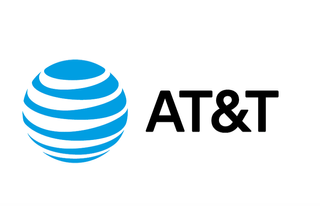AT&T Video Subscriber Losses Continue in Q1

The video subscriber exodus continued at AT&T in the first quarter, with the telcom giant shedding 897,000 premium TV customers in the period, mainly from its DirecTV and U-verse units.
AT&T stopped signing up new U-verse customers in April, and the IPTV unit continued to bleed subscribers along with its DirecTV satellite service. The company added that it also lost about 138,000 customers in its streaming AT&T TV Now (formerly DirecTV Now) service, bringing the total number of lost pay TV customers to 1.035 million in the quarter. Over the past year, AT&T has lost about 4.5 million DirecTV, U-verse and AT&T TV Now customers.
AT&T said Tuesday that it plans to launch its latest over-the-top offering -- HBO Max -- on May 27. HBO Max is expected to offer programming from its HBO and Turner networks, as well as original shows and is seen by some as an eventual replacement for its other pay TV offerings.
Overall, AT&T’s revenue declined 4.6% to $42.8 billion, with the COVID-19 taking a $600 million bite out of sales. The company said COVID-19 also impacted EBITDA by about $433 million.
In a conference call with analysts, AT&T chairman and CEO Randall Stephenson said minus the coronavirus impact, AT&T’s performance in Q1 was as expected.
“It’s been a chaotic few weeks for all of us, and the COVID pandemic has had a significant impact to our first quarter, to the tune of 5 cents per share,” Stephenson said. “But if we set the COVID-19 impact aside for a moment, the first quarter was pretty much what we had expected. We expected to produce solid wireless results that would cover the HBO Max investment, The net result would be stable EBITDA and EBITDA margins , and that is exactly what we delivered.”
AT&T’s Mobility unit did outperform expectations -- postpaid phone net additions of 163,000 beat estimates of about 50,000 adds, and ARPU was higher than most analysts expected. And though revenue at the Entertainment unit was in line with expectations at $10.5 billion (7% below the prior year), it fell short of forecasts in cash flow and subscriber losses. Cash flow at Entertainment, which includes DirecTV, AT&T TV Now and U-verse, was down 6% in the period, 4.5% less than most analyst expectations, while subscriber losses were nearly 100,000 customers higher than consensus estimates.
Multichannel Newsletter
The smarter way to stay on top of the multichannel video marketplace. Sign up below.
At WarnerMedia, revenue was down 12% to $7.4 billion, due to lower ad revenue from the cancellation of the NCAA March Madness tournament. EBITDA fell 25% in the period to $1.8 billion, due to the COVID-19 impact.
“[W]e don’t see much in these results that change our underlying view that AT&T’s mobility business remains solid, but the company’s entertainment and WarnerMedia businesses face greater risk and uncertainty in general, and in regards to COVID-19 in particular,” Evercore ISI Group media analyst Vijay Jayant wrote in a note to clients.
